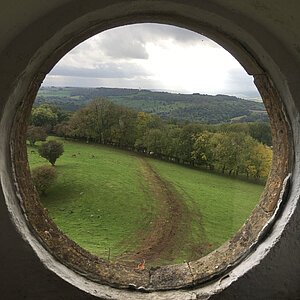Region and the Short Form in American Literature

Symposium in Honor of Jochen Achilles
July 26-27, 2018
University of Würzburg
Rooms 2.013 and 2.014
Zentrales Hörsaal- und Seminargebäude Z6, Am Hubland
A region is at the same time a geographic area distinguished by similar features as well as a cultural space with social, economic, and ecological implications. Literary regionalism had its starting point in the late nineteenth century, when writers connected their specific region’s character to its nature, people, and history. New England is generally seen as the source of regionalist writing, Sarah Orne Jewett as the paradigmatic regional writer, and her The Country of the Pointed Firs (1896) as a defining work of American literary regionalism. Lately, nineteenth-century literary regionalism has been reassessed regarding its relevance in a global community and a surge of memoirs set in economically depleted regions has highlighted a nexus between provincialism, poverty, and social crises, between region and class. Region as a concept is intimately connected to the concepts of environment and community.
The term environment indexes contested terrains located at the intersections of political, social, cultural, and ecological economies on the one hand, and, on the other hand refers to the place of nature in human history. Ecocriticism, which evolved from a regional movement of scholars of Western American literature into an interdisciplinary field central to American Studies, explores how the relationship between humans and the environment is portrayed in cultural products. In terms of a literary ecology, texts from American literary history are reexamined and contemporary short stories and novels are identified as ecofiction.
Community is at once a sociological and a cultural term with different conceptualizations. It describes a unified body of individuals, a social condition, or society at large. Carrying mainly positive connotations such as a sense of belonging, understanding, caring, cooperation, and equality, the term is often deployed to mobilize support for a variety of causes. Despite contradictory forces, the venerable American ideals of community, sociability, and the social compact have been part of the cultural imprint of American society since colonial times.
Narratives of community display some allegiance to regional, rural, or working-class ways of life that are not emphatically individualistic. Again, it is Jewett’s The Country of the Pointed Firs which is regarded as an archetypal text, but contemporary ethnic short story cycles also often fit this label. Regionalism and the practices of ecology emerged simultaneously in response to various upheavals of modernity and have since interacted. A growing body of scholarship argues that the natural environment is a critical component of community well-being and a stimulus for collaborative action.
Short forms in American literature encompass not only the short story and short story cycles, but also sketches, essays, novellas, short novels, and other literary genres. Jewett’s exemplary text connects issues of region with episodic structures and the short form. American short fiction frequently negotiates issues of nature, place, and belonging. Short story cycles are especially prone to depictions of the nexus between region, environment, and community. Yet, the topic of this symposium is also of obvious pertinence on a broader scale in an age of regression in climate and nature protection, rising nationalism, a growing divide between rich and poor, and increasingly selfish individualism.
This symposium is held in honor of Prof. Dr. Jochen Achilles, the former chair of American Studies at the University of Würzburg. It brings together some of his research interests with research trajectories followed by the current chair of American Studies, Prof. Dr. Catrin Gersdorf. The symposium thereby stresses lines of continuity in American Studies at the University of Würzburg.
Contact:


